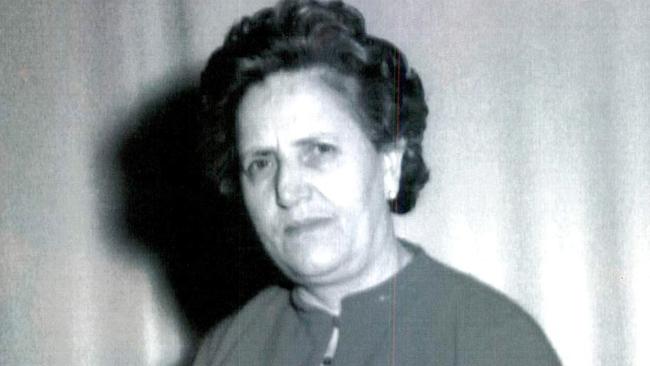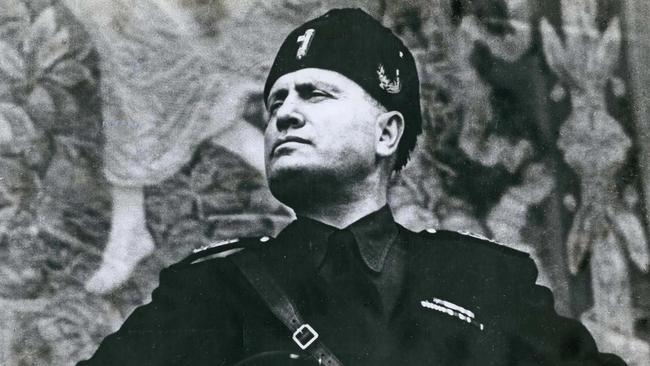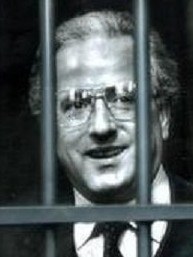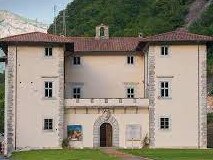Rosetta Cutolo sat atop a murderous crime empire for years
Secretive frump Rosetta Cutolo tended her roses – and her sociopathic jailed brother’s murderous drugs empire.

OBITUARY
Rosetta Cutolo
Camorra crime boss. Born Ottaviano, Italy,
January 1, 1937; died Ottaviano, October 14, aged 86.
They say a redeeming feature of brutal Italian dictator Benito Mussolini was that he made the trains run on time. This has been exhaustively researched in recent decades – it’s not true.
He inherited a transport system being rebuilt after the ravages of World War I, and its performance did improve, but it had nothing to do with Il Duce.
But what he did do, which is now mostly overlooked, is crack down on the Mafia in its various forms. This may have been because he saw it as a threat to his primacy, but he nonetheless had thousands of Mafia members arrested and tried – sometimes en masse, chained and crowded into courtroom cages – and jailed.

When Raffaele Cutolo was born outside Naples on Melbourne Cup Day 1941, Mussolini was still in charge. By then, not only had the Italian leader stepped over to the wrong side of history but Germany’s acclaimed Desert Fox, Erwin Rommel, had lost patience with the Italian troops. He thought them lazy, lacking initiative, training and drive, while being risk averse and without morale.
Rommel might just as well have been describing Cutolo, an ill-tempered, undisciplined, uneducated, work-shy thug who, aged 21, killed a man – his first murder victim; Mario Viscito had expressed an unhealthy enthusiasm for Cutolo’s sister.
Italian gangs thrived in the post-war chaos. Cutolo would hit other men rather than any books. And he was cunning. Despite spending the rest of his life from 1963 behind bars – mostly in jail, at other times in psychiatric institutions – he built an empire of crime, cross-funding it all with extortion, counterfeiting, drug importation and executions.

In jail he had a carpeted cell, with sound system and television. He employed the prisoner next door as his cook from whom Cutolo ordered his meals daily. When the killer was moved to another jail, he demanded authorities move his cook as well. They did. He had access to the governor’s telephone from which he would make international calls to arrange drug deals from South America. He called his gang the New Organised Camorra, arranged murders and paid “salaries” to his jailed comrades and their families. He wrote poetry and published it himself – you couldn’t buy a copy, he had to give you one.
He purchased the magnificent Palazzo Mediceo, a medieval castle at the foot of Mount Vesuvius, from which he would run his burgeoning empire. He never set foot in any of its 365 rooms, or walked its rambling grounds, or played tennis on its courts, or swam in the pool.
But his sister did.
Rosetta was four years older and lived such a low-key life, many were unaware Cutolo had a sibling. But, despite her persistent denials, she was integral to New Organised Camorra – it could not have functioned without her. She was single, dowdy – let’s call her frumpy – but appeared to be righteous, living with her mother for years, then later alone tending her roses. The nickname of this grey-haired spinster suggests something else: Ice Eyes.
With a brain that worked faster than a personal computer, she could analyse the figures of her brother’s businesses, although she always claimed she barely knew what those enterprises involved.
The Mediceo castle sat a little too proudly, even for the often corrupt Naples police, as the front of her businesses and in September 1981 they raided it as she hosted a meeting of the 18 regional crime families. As if she had anticipated a raid, she quickly hid in gap of a wall hidden by a large painting. As police crawled over its many rooms she escaped, reportedly under a carpet in the car of the local Catholic priest.

She then lived in various safe houses, still running her brother’s businesses. Twelve years later the police knocked on her door. Tired of being on the run, the only woman to head an Italian crime gang surrendered.
She denied involvement in nine murders – and of organising explosives to break open the doors of a hospital her brother had been taken to – but was convicted of various offences and sentenced to nine years, serving five.
Her nephew, Raffaele’s only son, Roberto, was murdered by men sent by a gangster whose brother’s murder had been ordered by the jailed Raffaele. No need to involve the police; Roberto’s killers were found dead with multiple gunshots to their faces.
Raffaele’s life ended behind bars in 2021. Neither did his sister die at home. These days, Palazzo Mediceo, seized by the government years ago, forms part of the Vesuvius National Park – and occasionally hosts anti-Mafia summits.




To join the conversation, please log in. Don't have an account? Register
Join the conversation, you are commenting as Logout